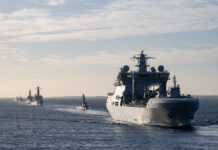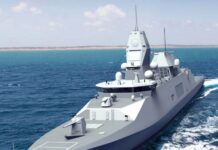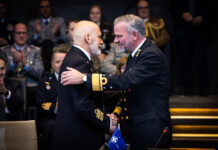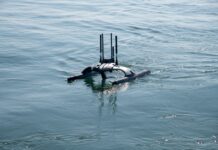French admiral takes command of NATO’s Allied Command Transformation
Peter Felstead
French Navy Admiral Pierre Vandier has succeeded General Philippe Lavigne as Supreme Allied Commander Transformation. The change of command took place on 23 September 2024 in Norfolk, Virginia, at a ceremony presided over by Admiral Rob Bauer, Chair of the NATO Military Committee.
Adm Vandier is the ninth Supreme Allied Commander Transformation. After joining the French Naval academy, he rapidly became a naval fighter pilot, performing numerous combat missions for almost two decades. He has commanded two major warships: the frigate Surcouf and the aircraft carrier Charles de Gaulle. Most recently he was chief of the naval staff and then France’s vice chief of defence.
Adm Bauer warmly welcomed Adm Vandier and emphasised the importance of Allied Command Transformation (ACT) in building the alliance’s future. “ACT plays an invaluable role in ensuring that the alliance safeguards the security and interests of its members against both the current threats and challenges we face today, as well as those that may arise in the future and beyond our present imagination,” he said. “Allied Command Transformation is a symbol of NATO’s confident embrace of the future and its challenges.”
Adm Bauer highlighted the major successes of Gen Lavigne at the helm of ACT over the past three years. During his tenure at ACT Gen Lavigne has overseen: the military integration of North Macedonia, Finland and Sweden; the Multi Domain Operations concept, roadmap and implementation, supported by digital transformation and the continuum of experimentation and innovation; the integration of NATO’s Concept for Deterrence and Defence of the Euro-Atlantic Area (DDA) plans into the NATO Defence Planning Process; the implementation of the Warfare Development Agenda; and ACT’s work in developing all fields of innovation on which the Defence Innovation Accelerator for the North Atlantic (DIANA) is able to grow.
Adm Bauer praised the leadership that Gen Lavigne has shown during this time, stating “With your keen intellect, strategic vision and infectious enthusiasm, you manage to make sure everybody who crosses your path wants to join your team. Nobody embodies the slogan ‘Win as a team’ like you do.”
In his speech, Adm Bauer stressed that, in order to address modern defence challenges, the NATO allies must rethink their approach to co-operation with the private sector. Moving away from a ‘just enough, just in time’ mindset, the allies now need substantial stockpiles of weaponry and a decisive technological edge for deterrence, he argued.
“In defending against near-peer adversaries, governments and the private sector must break the deadlock, fostering trust, long-term vision, and innovation,” said the admiral. “With our extensive reservoir of knowledge and creativity, I’m confident we can achieve this transformation.”
At the ceremony Adm Vandier stated his vision for the command. “For all of us here, maintaining our military credibility calls for an extraordinary effort to modernise our training, aggregate new technologies and invent new combat tactics that will give us operational superiority in a context of rapid global rearmament,” he said.
He continued by stressing that his “commitment, our collective commitment, is to provide the most efficient tools and procedures that will give them operational success in conflict and war”.
















